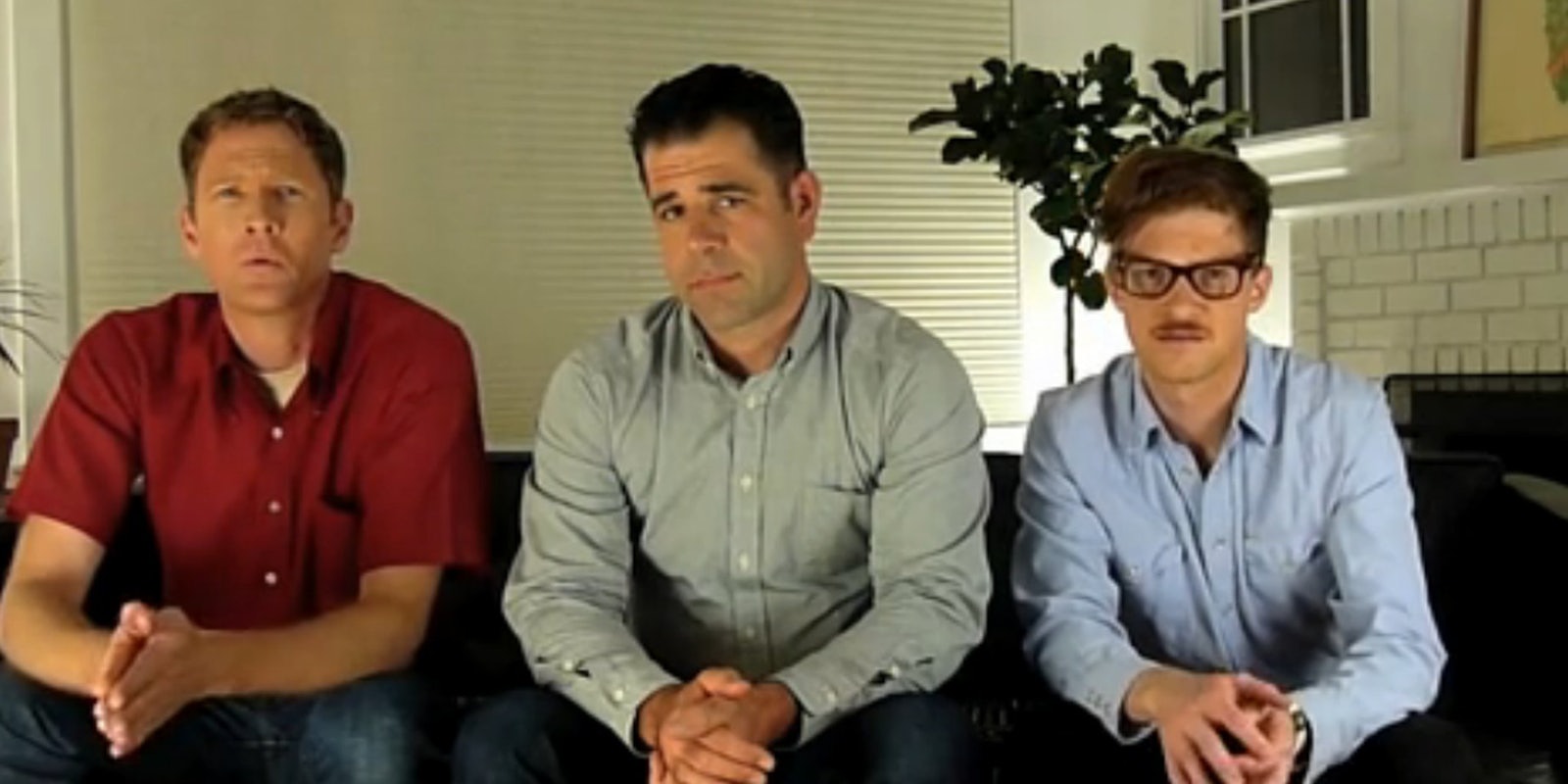Scamming Kickstarter’s easy if you know how to tweak the system right.
One month ago, three Oakland men known as the Wonderment Consortium launched a Kickstarter campaign hoping to raise $10,000 for a $15 job. The group wanted the money to build an inspirational nine-foot-tall papier-mâché statue of Tom Hanks.
It sounded shady at first. How did the Inspirational Tom Hanks Statue project meet Kickstarter’s approval? Why was Wonderment seeking such a lofty sum for a project that could have been completed by elementary schoolchildren? And why Tom Hanks? What’s that guy done that’s so inspirational anyway?
The Daily Dot asked those questions and more when we profiled the group earlier this month. Knowingly in character, they answered each question eloquently and directly, exhibiting a sincere interest in using the statue to inspire children.
“He’s had the arc that a lot of comedians have had where he’s gone from goofing off and being a comedian to taking on more and more serious roles,” Wonderment’s Steuart Pittman told the Daily Dot. “There’s a depth to Tom Hanks, and he’s able to inspire and bring weight to even the lightest of his roles. When you go to these school rallies and gatherings, what we hear is that these children want to be just like Tom Hanks.”
Now, with seven days and $7,750 to go and little chance of successfully funding Inspirational Tom Hanks Statue, the men behind Wonderment Consortium are finally talking—and they’re telling everybody just how easy it is to scam the site.
Yesterday, group member Scott Vermeire posted a note to his Posterous page explaining the motives behind his project. In it, he explained that the group saw the “creative project” angle of Kickstarter’s business model to be the site’s largest loophole, the one that they could most easily manipulate.
“The rules around this platform are very lax and that’s where Kickstarter starts to get murky,” Vermeire wrote. “Because, really, what project is not creative? If I want to add a sun deck to my beach house, that’s creative. If I want to expand my artisanal burger joint, that’s creative too. A quick review of Kickstarter’s hosted campaigns will show you that it is overflowing with these types of projects, which, to me, are often entrepreneurial or profiteering ventures in charity’s clothing.”
He noted that Kickstarter does not allow any 501(c)(3) organizations, charities, or “cause oriented” groups to post projects on the site, a restriction that actually allows scammers a greater opportunity: They don’t have to deal with any complex nonprofit accountability matters like the ones Internet rights attorney Charles Carreon recently tried to enforce in his case against The Oatmeal’s Matthew Inman.
“Unlike an IRS certified 501(c)(3), you’re not accountable for what you spend it on,” he wrote. “Unlike a legitimate business that gets a loan or investment, you aren’t accountable to your investors or the bank—double great!
“So while the American Red Cross, or the Human Society, or Earth Justice are still using arcane techniques like canvassing, mailers, or convention tables to fail at getting your money… some people are handing over their dough like it grows on trees to people on Kickstarter who have sexy, current, and hip videos selling you a rainbow of all the things they are going to do but are in no way obligated to do.”
And thus, Vermeire and his Wonderment Consortium partners opened up a Kickstarter to work with papier-mâché.
“If we campaign[ed] to raise $10,000 on Kickstarter to erect 9-foot-tall papier-mâché statue of Tom Hanks in front of Oakland Technical High School, and we end up spending, say $9,900 less than expected for the completion of the project, Kickstarter can make no claim to what we do with the profits,” he wrote.
“If we make the money, we can do what we want with it. Therefore, we could take a page out of Kickstarter’s own book by co-opting their method and take that $9,900 in profit.”
In Wonderment Consortium’s case, that didn’t happen. But it could. And to Scott Vermeire, that may be all that matters.
Photo via Kickstarter


